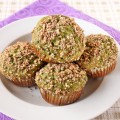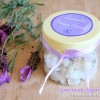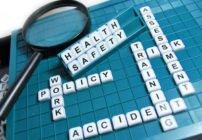
Most of the people rely on a multi-vitamin pill a day to take care of their daily nutritional needs, or at least to compensate for the deficits in their diet. However, lately I’ve been wondering if your age has a significant impact or not on the type and quantity of your nutritional needs, especially as you age. As I scoured the internet to find some answers, I found that humans of every age share many of the same nutritional needs when it comes to the kinds of things we need. As we age, however, the amounts of one food group may be less necessary while the addition of another food group may be needed to stay in optimal health. Let’s explore the specific nutritional needs required to maintain good health into our older adult and senior years.
The 6 Basic Needs
Protein – Protein needs increase slightly in women and decrease slightly in men. You still need to include lean meat, beans and eggs in your diet.
Fruits and Vegetables – Eating regular servings of these are necessary to help provide the various vitamins and minerals so necessary for maintaining health in general.
Carbohydrates – As you use less energy during the day, the amount of carbohydrates needed decreases.
Water – As we age, our bodies do not hold onto fluid as they once did, and it is essential to drink 6-8 glasses of water a day to prevent dehydration.
Fiber – The amount of fiber needed to keep your system functioning properly increases with age. While eating enough fruits and vegetables helps, as does drinking water, you may want to add a fiber supplement to ensure you are receiving enough.
Omega-3 Fats – These are found in fish and are essential, especially as you age. These fats have been proven to slow the onset of age-related macular degeneration and may play a part in keeping Alzheimer’s at bay.
Vitamins and Minerals
Calcium – This is needed to maintain strong bones. As you age, bone density, especially in women, can become less and cause bones to break easily. Making sure you’re getting enough calcium in your diet can help stop this.
Vitamin D – This is essential for the absorption of Calcium. It usually comes from the Sun and is added to milk. As we age, we often drink less milk and don’t get out in the Sun as much so almost everyone can benefit from adding a Vitamin D supplement to their daily routine.
Vitamin C – This vitamin helps repair bones and heals wounds. It also helps boost your immunity, making it easier to fight off colds.
Iron – Women do not need as much iron as they once did when they were menstruating, but it is still important. Men’s requirements remain about the same. Iron helps carry oxygen to the various organs and, without it; you become tired and unable to do much.
Zinc – This is another mineral necessary for a healthy immune system. As we age, there is a greater need for zinc as it is more difficult for the body to fight off illness alone.
Folate/B12 – Nerve function is also reduced as our bodies’ age. The B Vitamins, especially B12 and Folate help repair the frazzled nerves and make it easier to cope with the daily stresses.
Potassium – Potassium is necessary to maintain appropriate blood pressure levels. As people age the heart needs to work harder, and therefore, causes the blood pressure to rise. Adding Potassium to your diet will help keep your blood pressure from going too high.
Magnesium – This important mineral has the important task of keeping your heart as healthy as possible.
Sometimes it feels that our body ages while our minds remain young and vital. With the proper nutrition, we can’t stop the aging, but can make it possible to stay full of vitality well into our latest years. Your appetite may decrease as you get older, and it may be necessary to add a vitamin supplement to your daily routine to insure you get all the nutrients you need. Your doctor will be able to tell you which supplements are right for your particular needs (which may be enjoying a cup of coffee via your home coffee maker). You could also consult a Certified Nutritional Specialist which is a person who has earned at minimum a master’s degree in nutrition. Don’t allow your body to give into a number that indicates you are getting older. Eat healthy and get the proper nutrients and feel almost as young as your mind still does.
Related Posts
- Taking Care of Yourself As You Age
You might think that you are going to be as healthy as you feel right…
- How to prevent hearing loss as you age
Image Source - CC0 License There are many things that you have to pay a…
- Health & Fitness
Food FactsDiet & Nutrition Mind & Body Exercise & Fitness


















